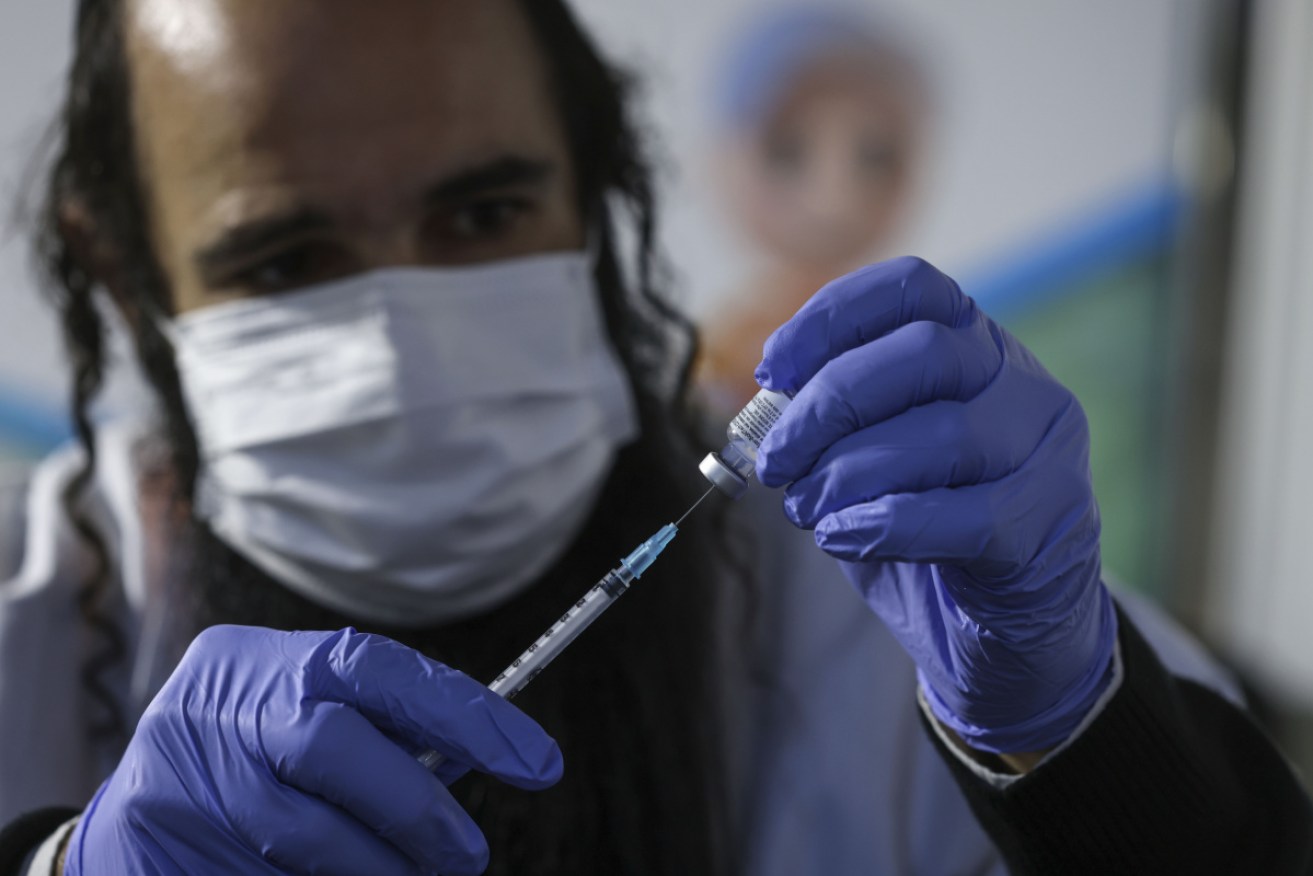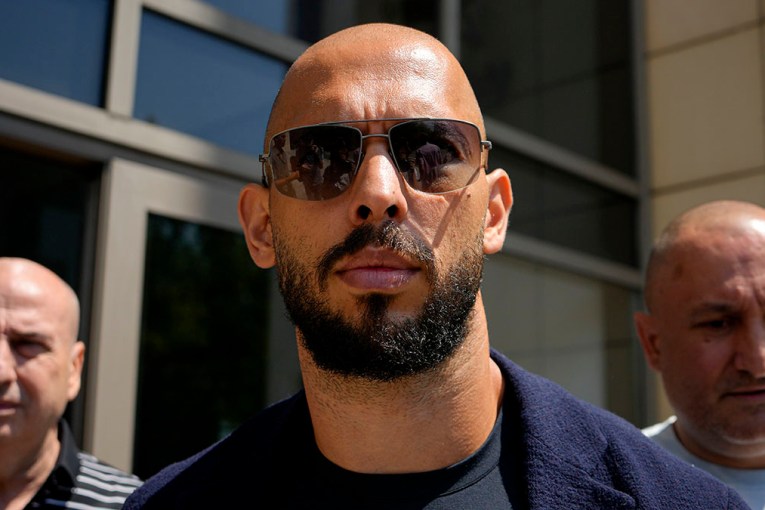The unlikely nation winning the coronavirus vaccine race


An Israeli health worker prepares a dose of the Pfizer/BioNtech COVID-19 vaccine in Jerusalem. Photo: Getty
As nations fight to overcome the pandemic, vaccinating populations against COVID-19 has become the biggest race of the century.
And one unlikely country is leading the way.
While Australia and developing countries continue waiting for their first dose, Israel has administered at least one jab of a coronavirus vaccine to more than half of its population.
That’s 4.66 million people in less than six weeks.
Israel’s vaccination rate is outpacing any other country, with plans to inoculate 80 per cent of its citizens by the end of May.
Meanwhile, countries that have been ravaged by the coronavirus like the United Kingdom and the United States are trailing further behind.
So far, the UK has given at least one jab to about 13 per cent of its citizens (8.86 million people), while the US has given a single dose to less than 9 per cent of Americans (27.88 million).
The data showing the progress of countries with a current vaccination program was compiled from government sources by Our World in Data.

Most countries are using vaccines from Pfizer/BioNTech or Moderna, both of which require two doses.
But some countries like the United Arab Emirates and Bahrain – which join Israel, the UK and the US in the top five countries with the world’s highest vaccination rates – are using alternatives.
The two Middle Eastern countries have also been using a vaccine developed by the Chinese company Sinopharm, which has not been approved for use in the United States or the Europe Union.
Countries in the European Union are off to a much slower start.
Europe’s vaccination frontrunner Italy has given one jab to just 3 per cent of its population.
How did Israel do it?
The Israeli government did three key things: Order doses early, pay a lot and digitise distribution.
In June last year, Israel became one of the first countries to reach a purchase agreement with Moderna.
The deal with Pfizer/BioNTech is where it gets interesting.
So far, authorities have remained tightlipped about what they paid for the Pfizer vaccine, but reports suggest priority access came at a high premium to what the EU and the US are paying.
One official anonymously revealed Prime Minister Benjamin Netanyahu’s government was “paying around $30 per vaccine dose, or around twice the price abroad.”
According to a recent article published in the BMJ, a prestigious British science journal, Israel paid $30 per dose on average to Pfizer and Moderna to gain early shipments.
“Even at this high price, vaccinating the entire population of Israel costs the economy only as much as two days of lockdown,” the authors wrote.
As a controversial deal sweetener, Israel has also committed to sharing anonymised demographical data of its vaccinated citizens with Pfizer in exchange for accelerated access to doses.

The patient data of Israelis, including pregnant women, will be given to Pfizer for analysis. Photo: Getty
This was made possible by Israel’s universal public healthcare system that is linked to a nationwide digital network.
The move has raised some privacy concerns.
Despite the inclusion of safeguards in the agreement, thorny questions remain over whether individual data should be shared with profit-making companies without explicit consent.
Another point of controversy is the fact that Israeli settlers are receiving the vaccine, but Palestinians in occupied territories like the Gaza Strip and West Bank are not.
In response to global criticism for excluding Palestinians from its programme, Israel has maintained that despite being the occupying country, vaccination is the responsibility of the Palestinian Authority.
The Palestinian Authority has placed orders for the Russian Sputnik V vaccine but there is not currently enough supply of it for a full rollout.








